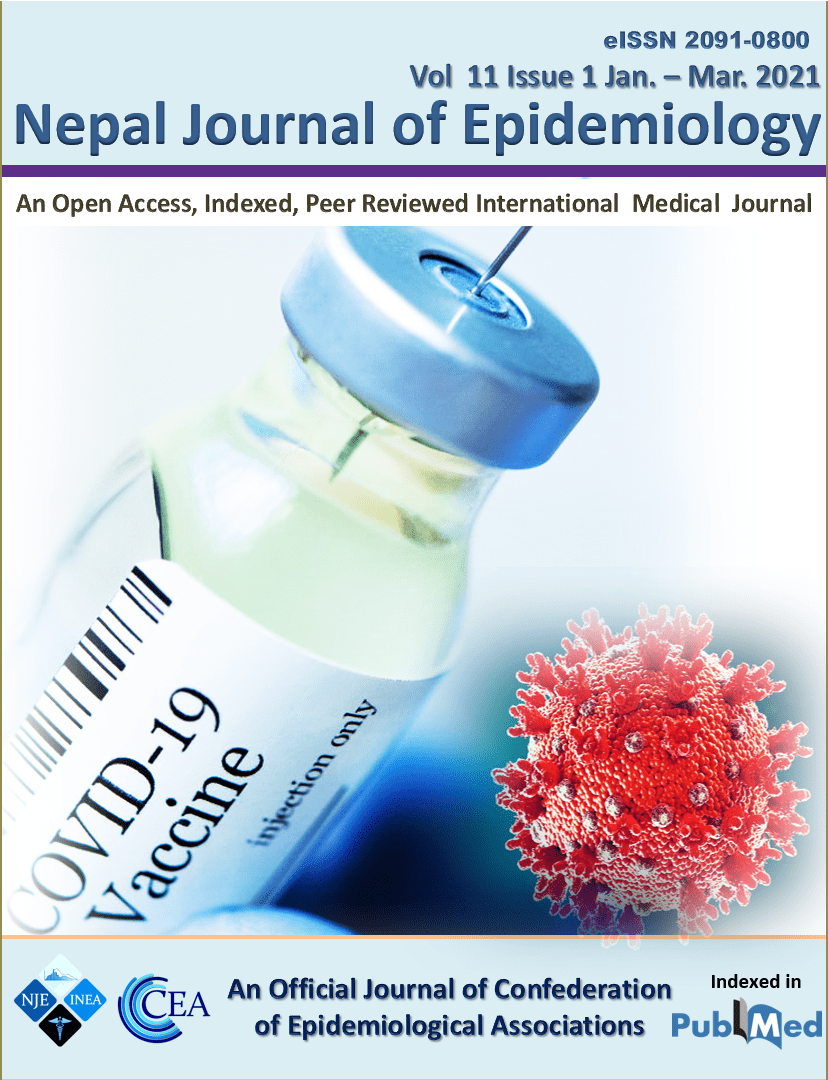COVID-19: Are reinfections a global health threat?
DOI:
https://doi.org/10.3126/nje.v11i1.34903Keywords:
Disease Attributes, Vaccines, Immunization, SARS-CoV-2, RecurrenceAbstract
The SARS-CoV-2 virus has plagued the planet and caused unfathomable disruptions in every facet of our lives. The undue and unforeseen losses as a consequence of this pandemic will take years to quantify and even longer to curtail. This phenomenon creates an innate pressure on humans as it synergistically charges the environment to propel the movement of restarting enterprise and life as it was before the pandemic in order to curb this “loss”.
A plethora of hurdles however are still in question. Firstly, the re-opening of enterprise and a country has to be done in a safe manner. To overcome this hurdle the development of multiple vaccinations to this novel virus has been streamlined.
The greatest matter in question however, is the efficacy of these vaccines and whether they will be the answer to allow a safe re-ignition of global enterprise and countries as multiple cases of reinfections have been recorded, namely reinfections post recovery from the disease. After the initiation of the immunization with both the Moderna mRNA-1273 vaccine and the Pfizer BNT162b2 vaccine, cases of infection with COVID-19 have been reported.
It is evident that reinfections of the SARS-CoV-2 virus can be attributed to two major benefactors. The first being a decrease in production or failure of natural acquired immunity thus leading to the reinfection by the same strain of the virus rendering the person ill and or asymptomatic. The second benefactor is that of mutations. Mutations of the virus will predispose to reinfections as the already established naturally acquired immunity is not beneficial or useful to combat a mutated strain. It is thus poignant for cases of reinfection to be investigated thoroughly as to determine whether the reinfection was caused due to an innate lack of immunity or due to a new strain where no prior immunity existed. It must however be noted that the cases of reinfections are a rather rare event and even if a reinfection does occur, the case if usually mild and or asymptomatic. The impact of reinfection on immunization at this point of time is difficult to quantify however, initial reports do show positive signs even in cases where the vaccine is not fully effective against a mutated strain.
Downloads
Downloads
Published
How to Cite
Issue
Section
License
- Upon acceptance Copyright on any research article is transferred in full to the Confederation of Epidemiological Associations (CEA) and International Nepal Epidemiological Association (INEA). The copyright transfer includes the right to reproduce and distribute the article in any form of reproduction (printing, electronic media or any other form).
- Articles in the Nepal Journal of Epidemiology are Open Access articles published under the Creative Commons CC BY License (https://creativecommons.org/licenses/by/4.0/)
- This license permits use, distribution and reproduction in any medium, provided the original work is properly cited.




